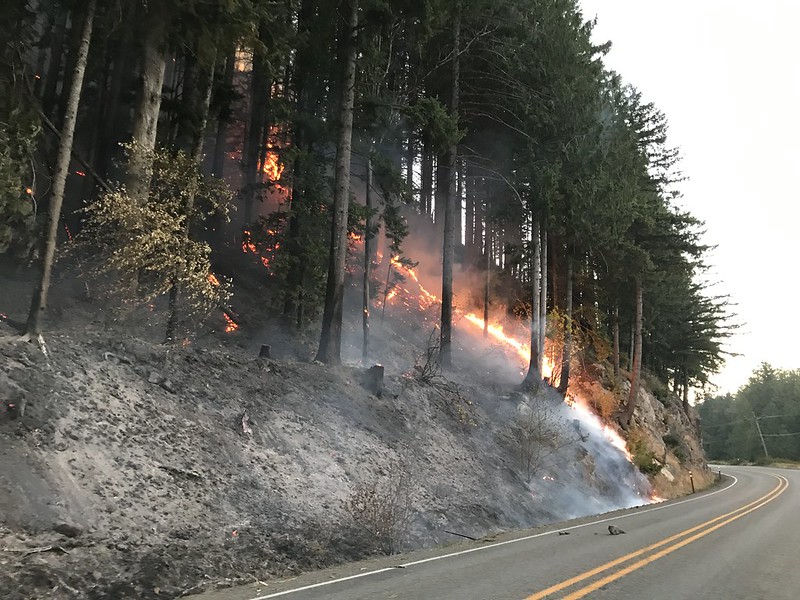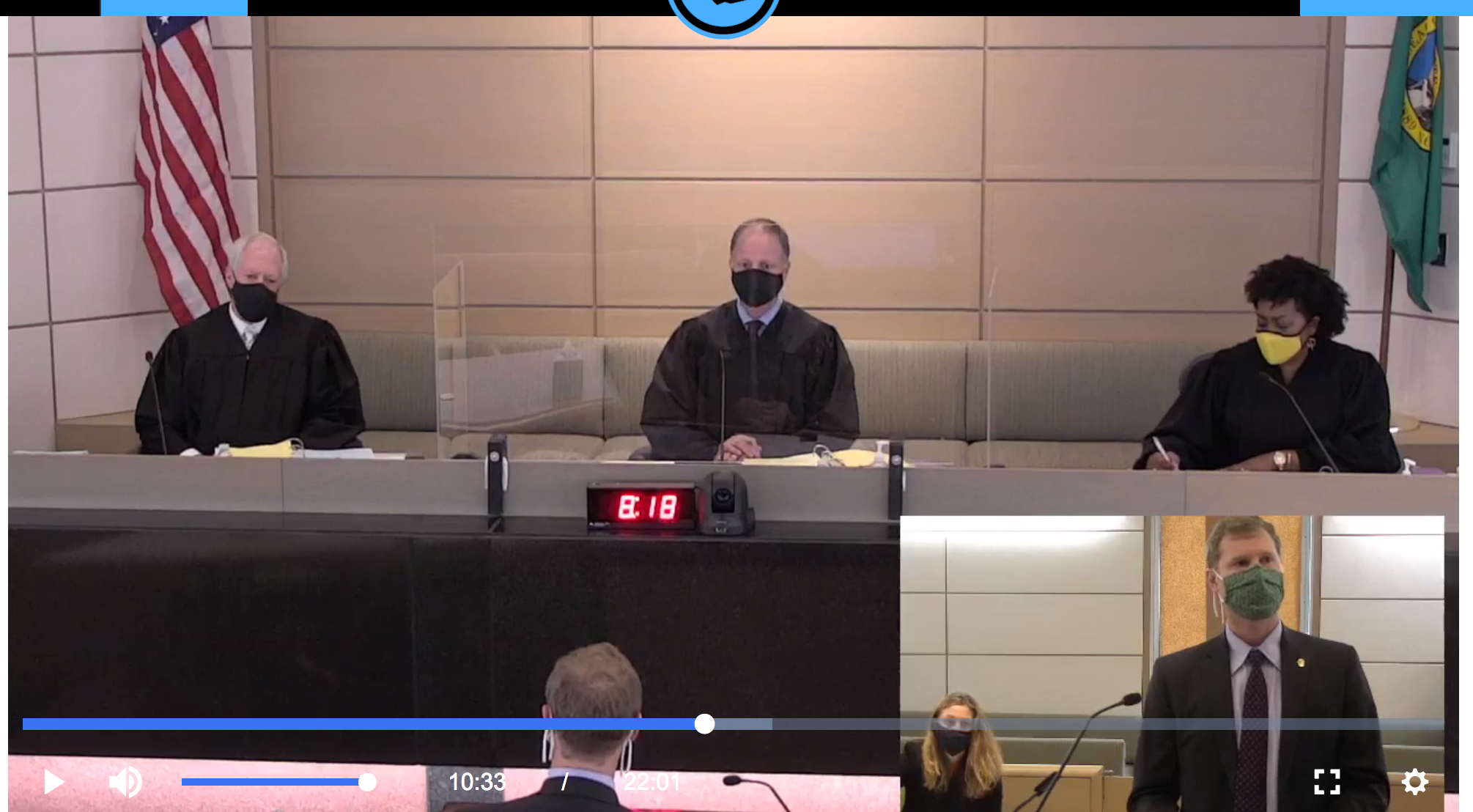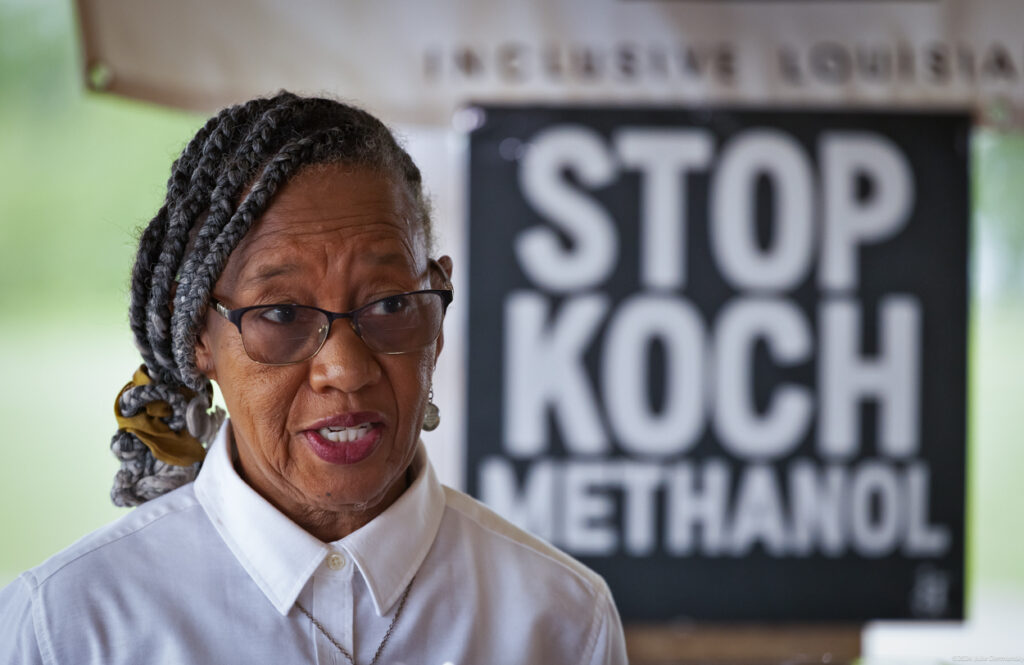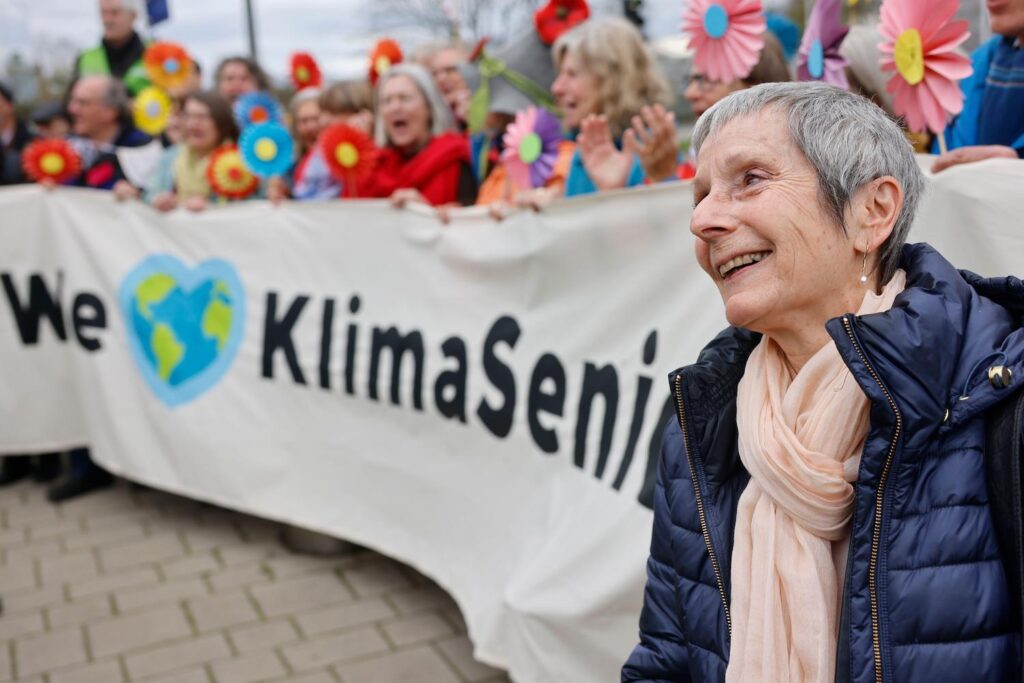As rampant wildfires worsened by climate change continued to batter the western U.S. this week, a Washington state appeals court examined the question of whether young people should be allowed to sue their state government over the climate crisis. The hearing, held Thursday, September 17, is part of a case brought by 13 Washington youth against the Evergreen State.
That case, Aji P. et al. v. State of Washington, argues that the government is violating the youths’ fundamental rights under the state constitution through policies that perpetuate fossil fuels and fail to reduce carbon emissions rapidly enough to avoid catastrophic climate consequences. At a time when the state is literally on fire and climate calamity impossible to ignore, the court appeared skeptical of the state’s argument that the political branches of government are doing enough to address the crisis and that climate change doesn’t undermine fundamental rights protected by the constitution.
“For the last 10 days, I can’t go outside. If I go outside, I’m threatening my life. I have asthma. So I have to stay inside with the windows shut. Why isn’t that affecting my life?” Judge David S. Mann asked Assistant Attorney General Chris Reitz, the lawyer representing the state in this case.
Reitz argued that climate change affects all of society and is a matter for the political branches of government to sort out, not the courts. This argument that the climate crisis issue is a “political question” that courts cannot resolve is ultimately what led King County Superior Court Judge Michael Scott to dismiss the case in August 2018. The youths are appealing, and in Thursday’s 20-minute hearing before the Washington State Court of Appeals, the judges repeatedly questioned Reitz during his argument while allowing the youths’ attorney Andrea Rodgers to present her arguments uninterrupted.
Screen shot from recorded appeals court hearing in the case Aji P et al. v. State of Washington. Judges (from left) David S. Mann, Bill A. Bowman, and Lori K. Smith presided over the hearing.
Judge Lori K. Smith, for example, questioned Reitz why the court could not simply determine that the state, by not reducing emissions quickly enough, is endangering the youth plaintiffs.
“Can’t we just say the pace [of emissions reductions] you set is inappropriate, set a faster pace?” she asked.
Reitz argued that such a determination would require the court to find that there is a constitutional duty to ensure a stable climate system, and that no such constitutional right exists.
But as the youths’ attorney Andrea Rodgers told the court, young people’s basic rights like the right to life and liberty, which are clearly protected under the constitution, are at risk from the climate crisis and the inadequate responses from government to address it. The Washington Supreme Court has previously ruled that the state violated children’s constitutional right to education through the government’s underfunding of public schools. The youth in this climate lawsuit are similarly arguing that the government, though policies that support fossil fuels and fail to drastically rein in greenhouse gas emissions, is infringing on young people’s fundamental rights.
The youths’ “very lives and liberties are at stake,” Rodgers said.
She opened her argument describing how climate change right now is personally impacting one of the case’s youths through the state’s devastating wildfires, which have burned more than 800,000 acres and destroyed over 400 homes and other structures this year. Rodgers described the experience of 15-year-old plaintiff Kailani S., a member of the Colville Indian Nation who currently lives in the north-central Washington town of Omak, just a few miles from a major fire.
“These are fires Gov. Inslee just last week called the climate fires … fires from which Kailani cannot escape, putting her personal security and safety at risk,” Rodgers said. “This case challenges the actions the state has taken to exacerbate these very climate change conditions that in real time are infringing upon Kailani’s and the other plaintiffs’ constitutional rights to life and liberty.”
The plaintiffs filed their constitutional climate lawsuit against the state, Gov. Jay Inslee, and several state agencies asserting that Washington has violated the youngest generation’s constitutional rights to life, liberty, property, and equal protection of the law. 5/7 pic.twitter.com/16aDx29c1a
— Our Children’s Trust (@youthvgov) September 16, 2020
The youths are seeking a court order that declares the state is endangering its youth and requires the state to develop an enforceable climate recovery plan guided by the best available climate science. The youth lawsuit targets various state agencies that implement climate and energy policies as well as Washington Governor Jay Inslee, who is widely regarded as a strong supporter of climate action and campaigned in the Democratic presidential primary on the singular issue of climate change.
But while Gov. Inslee and the Washington state government are taking some actions to address climate change, the youth plaintiffs and their lawyer say these actions don’t go far enough to protect the youths from climate harms that are already unfolding and are projected to worsen.
“My young clients are experiencing devastating climate change impacts today. Many are unable to safely leave their homes because of the deadly air quality,” Rodgers said in a press release. “We are hopeful that the judges recognize how climate change affects individual rights to life and liberty and allow these children to present evidence at trial to prove that their government is making these climate harms worse.”
Main Image: Wildfire burning near Enumclaw, Washington on September 9, 2020. Credit: Washington State Department of Transportation, CC BY–NC–ND 2.0
Subscribe to our newsletter
Stay up to date with DeSmog news and alerts







